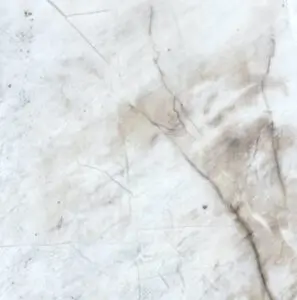What is the Effect of Oven Cleaner on Kitchen Countertops?

Cleaning the kitchen is a universal chore. While you may be tempted to use powerful oven cleaner for all your cleaning needs, it’s unsuitable for kitchen countertops. After all, this potent product works wonders on stubborn oven grime, but its abrasive properties can wreak havoc on your beautiful kitchen counters. If you want to learn what is the effect of oven cleaner on kitchen countertops, keep reading.
The Dangers Lurking in Oven Cleaners
Oven cleaners are heavy-duty, hard-hitting products containing numerous potent chemicals:
- Sodium hydroxide is a powerful alkali that dissolves grease and fat, perfect for tackling oven grime. But when it touches your natural stone countertops, it causes discoloration and erosion.
- Butane is a propellant that helps the cleaner spread evenly across your oven, but it can leave behind a sticky, hard-to-remove residue on countertops.
- Turpentine and monoethanolamine (MEA), types of emulsifiers that dissolve tough grime, strip countertop sealants and leave them vulnerable to stains and scratches.
- Monobutyl ether, while effective at breaking down oil and grease, can lead to discoloration and weaken the bonding materials of composite countertops like quartz.
- Diethylene glycol aids in dirt and grease removal and maintains product moisture, but prolonged contact can erode your countertop finish, leaving it dull and prone to damage.
Preferred Methods for Cleaning Countertops
Follow these tips to maintain the beauty and longevity of your countertops without resorting to harsh cleaning agents like oven cleaners.
- How to clean marble countertops: Despite its elegant appearance, marble is quite sensitive to acidic and abrasive cleaners. To prevent etching and staining, wipe up spills immediately using a soft cloth. Then, clean regularly with warm water and mild detergent.
- How to clean granite countertops: Granite needs regular care to maintain its stunning appearance. Warm soapy water is sufficient for daily cleaning. Always dry thoroughly to prevent water spots, and avoid harsh or acidic cleaners that strip away the protective sealant.
- How to clean quartz countertops: As a non-porous countertop material, quartz resists staining. Despite this, it can still be damaged by harsh chemicals. For daily cleaning, use warm water and a soft cloth. For stubborn stains, use a gentle, non-abrasive cleaner.
- How to clean quartzite countertops: While quite robust, quartzite requires proper care. Warm water, mild soap, and a soft cloth are your best bet for daily cleaning. Blot up spills quickly to avoid staining, and seal your quartzite countertops regularly to protect against stains.
- How to clean porcelain countertops: Even though porcelain is resistant to scratches, heat, and stains, it’s best to avoid harsh chemicals that can damage the glaze. Stick with the tried-and-true soapy water method for daily cleaning and try a baking soda and water paste for stubborn stains.
Schedule Professional Countertop Installation in Northern Utah
Now that you know what the effect of oven cleaner on kitchen countertops is, schedule an appointment with Signature Marble and Granite for new countertop installation if your current counters cannot be saved. We understand the unique needs of various countertop materials. As a professional countertop installer in Northern Utah, our attention to detail, craftsmanship, and dedication to customer service are second to none. Whether you need advice on maintaining your countertops or you’re looking to install new ones, we’re here to help. Call us at (801) 473-6787 for your free countertop installation estimate in Utah County, Salt Lake County, Davis County, Summit County, or Weber County.
